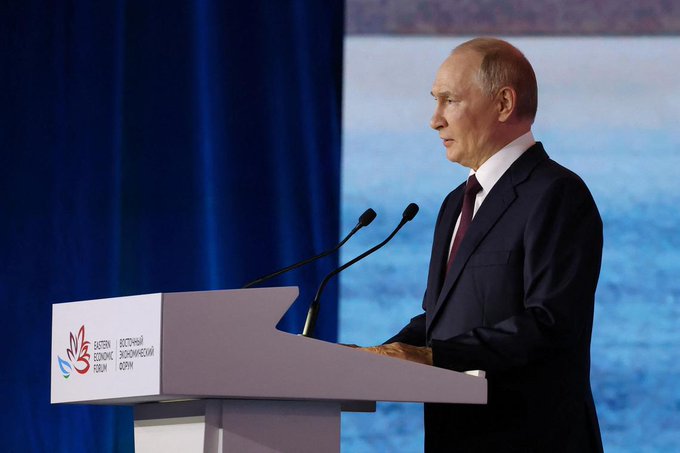Russian President Vladimir Putin has made a decisive statement rejecting Western security guarantees for Ukraine and issued a stern warning that any Western troops deployed on Ukrainian soil would be considered “legitimate targets” for Russian military action. This announcement comes amid ongoing international discussions about the post-war security framework for Ukraine.
Context of the Warning
Recently, 26 countries, including many Western powers, pledged to form a “reassurance force” to be deployed in Ukraine following a potential ceasefire or peace agreement. The force aims to deter renewed Russian aggression and provide robust security guarantees for Ukraine across land, sea, and air. Ukrainian President Volodymyr Zelenskyy and French President Emmanuel Macron have endorsed the initiative, describing it as a critical step to securing Ukraine’s future beyond active conflict.
In contrast, Putin has rejected the deployment of any foreign military personnel in Ukraine, especially Western troops, viewing their presence as a direct military threat that Moscow must counter. Putin’s remarks were made at the Eastern Economic Forum in Vladivostok on September 5, 2025, where he said:
“If any forces are deployed there, especially now while battles are taking place, we will proceed from the principle that they will be legitimate targets.”
He further expressed that if peace agreements fostering long-lasting peace were reached, foreign troops would no longer be necessary. Still, he emphasized the current absence of serious security discussions with Russia regarding Ukraine’s future.
Breakdown of Positions
| Aspect | Western Allies (e.g., France, UK, Ukraine) | Russia (Putin’s stance) |
|---|---|---|
| Security Guarantees | Deployment of international reassurance force after conflict | Rejects foreign troops in Ukraine as provocative |
| Troop Deployment Timing | Post-ceasefire or peace agreement | Any current deployment seen as military threat |
| Nature of Security Force | Multinational, non-frontline, deterrent to further aggression | No foreign military presence acceptable |
| Ukraine’s NATO Prospects | Support continued military and security ties | Sees NATO expansion as a key cause of conflict |
| Peace Talks Inclusion | Security guarantees without mandatory Russian involvement | Insists Russia must be involved seriously in security talks |
| Response to Troop Deployment | Believes troops ensure stability | Declares troops “legitimate targets” for Russian military |
| Previous Agreements Violations | Cites Russia’s breaches (e.g., Budapest Memorandum) | Claims guarantees should involve both Russia and Ukraine |
Key Messages from Putin
-
Western troops on Ukrainian soil, especially during ongoing hostilities, will be targeted by Russian forces.
-
Russia is open to political settlement but states no serious security talks involving Russia have yet occurred.
-
Peace and security guarantees must consider Russia’s security interests as well.
-
Ukraine’s increasing alignment with Western military frameworks is a core cause of the conflict.
-
If peace is achieved, Russia sees no need for foreign troops in Ukraine.
International Reactions and Implications
-
French President Macron and other European leaders stress the reassurance force is defensive, not offensive.
-
The US supports the idea but is unclear on specifics of troop contributions.
-
Some European countries (Germany, Spain, Italy) prefer non-troop support such as financing and training.
-
NATO Secretary-General highlights the importance of deterrence against broader threats.
-
Russian officials perceive international forces near their borders as unacceptable and a security risk.
Summary of Security Forces Proposal vs. Putin’s Response
| Proposal Feature | Description | Putin’s Response |
|---|---|---|
| Force Composition | Troops from 26 allied nations, including land, air, and sea | No foreign troops in Ukraine allowed |
| Deployment Timing | Post-ceasefire or peace agreement | Troops during conflict are legitimate targets |
| Mission | Deterrence of renewed Russian aggression | Presence of Western troops seen as escalation threat |
| Involvement of Russia | Not explicitly required in coalition plans | Demands Russian inclusion in security negotiations |
| Goal | Long-term security and stability for Ukraine | Security must guarantee Russia’s interests too |
Conclusion
Putin’s rejection of Western troop deployments in Ukraine and his explicit warning that they would be legitimate military targets highlight the deep geopolitical fault lines underlying the Ukraine conflict. While Western nations move towards securing Ukraine’s future with international guarantees, Russia’s stance poses a significant obstacle to peace implementation. The divergent views underline the complexity of achieving an enduring resolution that satisfies all parties’ security concerns.
The evolving situation calls for cautious diplomacy alongside preparedness, as Ukraine’s allies push forward with plans to protect the nation in the long term, while Russia remains resolute in opposing any Western military footprint on its neighbor’s soil.

